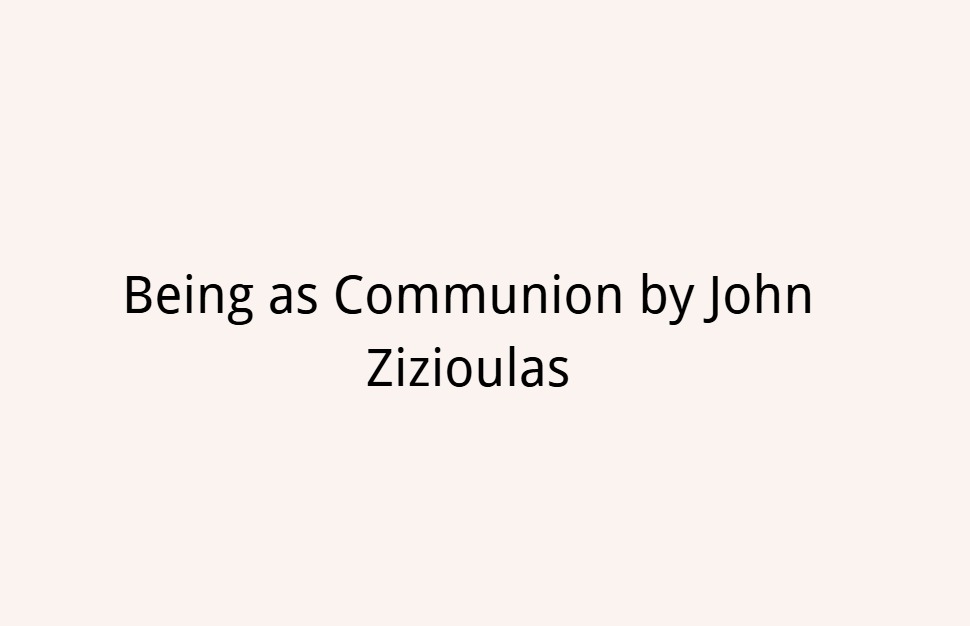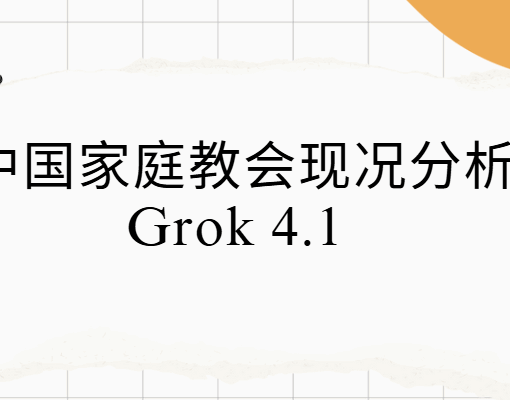Here are concise abstracts capturing the core themes and arguments of **John Zizioulas’s seminal work, *Being as Communion: Studies in Personhood and the Church* (1985, 1997)**:
**1. Core Ontological Thesis:**
> *Being as Communion* radically proposes that **being (ontology) itself is fundamentally relational and derives from communion**. Against Western philosophical traditions (ancient and modern) that define being as static substance (*ousia*) or individual essence, Zizioulas argues that **true being originates in the free, loving communion of the Holy Trinity**. Personhood (*hypostasis*), understood as unique, free, relational otherness-in-communion (exemplified perfectly in the divine Persons), is ontologically *prior* to substance. **”Communion makes beings ‘be’.”**
**2. The Person as Ecstatic and Free:**
> Zizioulas presents the **human person** not as an isolated individual defined by biological necessity or psychological properties, but as an **ecstatic being** called to transcend biological limitations (*hypostasis* overcoming *nature*) through **free relationship**. True personhood is achieved only through incorporation into the **ecclesial person of Christ** via Baptism and the Eucharist. **Freedom is defined not as autonomy, but as liberation *from* the necessity of biological existence and *for* loving communion with God and others.** “The person is the free agent of communion.”
**3. Ecclesiology as Existential Ontology:**
> The **Church** is not merely an institution or gathering, but the **concrete realization of Trinitarian communion in space and time**. It is the **unique locus where true personhood and being are realized**. The Church, as the *Body of Christ*, is an *ontological* reality where human beings participate in the relational life of God. Its structure (episcopal ministry, conciliarity) reflects and safeguards this Trinitarian relationality. **”The Church is constitutive of personhood.”**
**4. Eucharist: Source of Being and Unity:**
> The **Eucharist** is the **preeminent event where the Church becomes what it is: the Body of Christ**. It is not merely a symbolic act, but the **ontological source of the Church’s unity and being**. Through the Eucharist, the eschatological community is realized *now*, transcending time and space. The bishop, presiding as an icon of Christ, embodies the unity of the local church within the universal communion. **”The Eucharist makes the Church.”**
**5. Theological Anthropology Rooted in Christology:**
> True **human identity** is found only **”in Christ.”** Christ, as the perfect God-Man, redeems humanity not just morally or legally, but *ontologically*. By assuming human nature, Christ introduced the possibility of true personhood – freedom from the bondage of biological individualism and death – into human existence. **Baptism incorporates us into this new mode of Trinitarian existence.**
**6. Critique of Individualism & Substance Metaphysics:**
> The work offers a profound **critique of Western individualism** (both modern and ancient) and **substance-based metaphysics**, arguing they lead to isolation, objectification, and the denial of authentic otherness and freedom. Zizioulas contrasts this with the **patristic (especially Cappadocian) understanding** of personhood derived from reflection on the Trinity and Christology.
**7. Synthesis of Patristic Theology:**
> Zizioulas synthesizes insights from key figures like **St. Athanasius** (deification, Christology), the **Cappadocian Fathers** (Trinitarian theology, personhood vs. essence), **St. Maximus the Confessor** (freedom, will, eschatology), and **St. Gregory Palamas** (energies/essence distinction) to construct his relational ontology.
**In essence:** *Being as Communion* argues that **authentic being, freedom, and personhood are only possible through participation in the loving, eternal communion of the Trinity, which becomes an existential reality for humanity within the Eucharistic life of the Church.** It shifted the paradigm in Orthodox theology and significantly influenced ecumenical discussions on ontology, personhood, and ecclesiology.
These abstracts capture the revolutionary and defining arguments of this foundational text in contemporary Orthodox theology.




